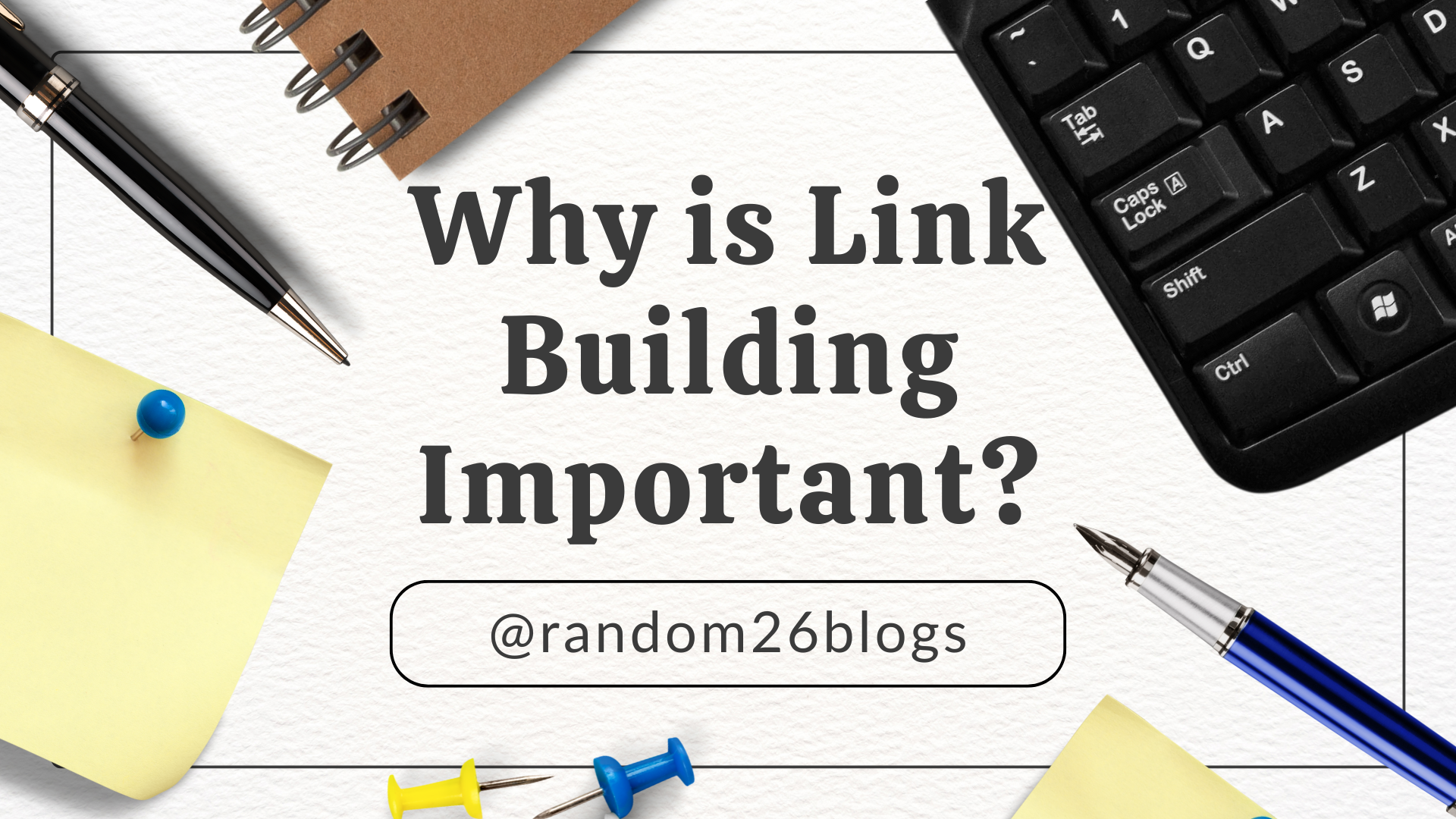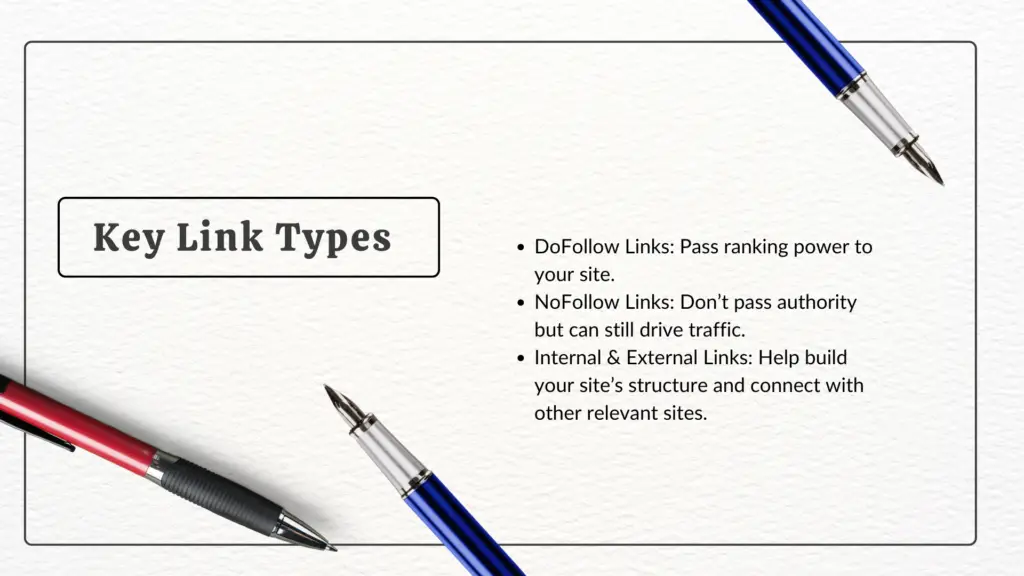
Table of Contents
✦ What is Link Building? ✦
Link building is the process of acquiring hyperlinks from other websites to your own. These links, also called backlinks, are essential for search engine optimization (SEO). Quality backlinks contribute to:
- Increasing Website Credibility and Authority: High-quality links from reputable sites enhance your website’s credibility.
- Improving Search Engine Rankings: Backlinks signal to search engines that your content is trustworthy, which can improve rankings.
- Driving Referral Traffic: Well-placed backlinks on popular sites bring in targeted, relevant traffic.
Why is Link Building Important?
Link building is a critical part of SEO and offers numerous benefits, including:
- Search Engine Rankings: Links are one of the main factors search engines use to rank pages. The more high-quality links you have, the better your chances of ranking well.
- Website Authority: Building links from authoritative websites can enhance your site’s credibility and trustworthiness.
- Referral Traffic: Backlinks from other websites can drive high-quality traffic directly to your site.
- Brand Visibility: High-quality links increase your website’s visibility and online presence.
- Local SEO: For local businesses, relevant backlinks can help boost local rankings, connecting businesses with nearby customers.

Types of Links
There are several types of links, each with a different impact on your website:
- DoFollow Links: Pass link equity (ranking power) to your website.
- NoFollow Links: Do not pass link equity but can still bring referral traffic.
- Internal Links: Link to other pages within your own website.
- External Links: Link to pages on other websites.
- Anchor Text Links: Use descriptive text within the link, improving context and relevance.
Link Building Strategies
Implementing diverse strategies is key to building a natural and effective backlink profile. Some popular link-building tactics include:
- Guest Blogging: Writing articles for other websites in exchange for a backlink.
- Resource Pages: Reaching out to websites that compile resources and suggesting your site as a valuable addition.
- Broken Link Building: Finding broken links on other websites and offering a link to your content as a replacement.
- Content Marketing: Creating high-quality, shareable content that others will want to link to.
- Social Media Sharing: Sharing your content on social media can increase visibility and earn links.
- Local Citations: Listing your business in local directories helps with local SEO.
- Reviews and Testimonials: Offering testimonials in exchange for a backlink.
- Partnerships and Collaborations: Building links through partnerships with complementary brands or websites.
- Web 2.0 Properties: Creating content on platforms like Medium, LinkedIn, or Tumblr with links to your site.
- Infographics and Visual Content: Shareable visual content can encourage others to link back to your site.
Best Practices for Link Building
To make the most out of your link-building efforts, follow these best practices:
- Quality over Quantity: High-quality links from authoritative sites are more valuable than numerous low-quality links.
- Relevant and Contextual Links: Aim for links from sites that are relevant to your industry or topic.
- Diverse Link Sources: Maintain a natural link profile by building links from various types of sites.
- Avoid Link Schemes and Spam: Search engines can penalize manipulative link-building practices.
- Monitor and Disavow Toxic Links: Regularly check for harmful backlinks and use disavow tools if necessary.
Link Building Tools
Several tools can help you analyze, track, and improve your link-building strategy:
- Ahrefs: Comprehensive SEO tool with backlink analysis and competitor research.
- SEMrush: Offers backlink audits, link-building tools, and site analytics.
- Moz: Known for its link explorer, domain authority metrics, and link-building insights.
- Majestic SEO: Focuses on backlink analysis with tools like Trust Flow and Citation Flow.
- Google Search Console: Provides insights into backlinks that Google recognizes for your site.
Benefits of Link Building
Effective link building delivers numerous advantages, including:
- Improved Search Engine Rankings: Quality links contribute to higher rankings.
- Increased Website Traffic: Backlinks bring direct traffic from referral sites.
- Enhanced Brand Credibility: Being linked from reputable sources boosts trust.
- Better Online Visibility: More links lead to higher visibility in search results.
- Increased Referral Traffic: Backlinks from high-traffic sites can deliver engaged visitors.
Common Link Building Mistakes to Avoid
To ensure long-term success, avoid these link-building pitfalls:
- Buying Links: Google penalizes websites that engage in paid link schemes.
- Over-Optimizing Anchor Text: Avoid using the same keyword-rich anchor text excessively, as it can appear unnatural.
- Ignoring Link Diversity: Focus on building links from a range of sources.
- Not Monitoring Link Quality: Keep track of backlinks and disavow toxic ones.
- Not Disavowing Toxic Links: Ignoring harmful backlinks can hurt your SEO.
wraping up, link building remains one of the most impactful SEO strategies. With the right approach, focusing on quality, relevance, and diverse sources, you can build a strong backlink profile that boosts rankings, traffic, and authority







profesyonel su kaçak tespiti Küçükçekmece’deki evimizdeki su kaçağını kısa sürede tespit ettiler. Kesinlikle tavsiye ediyorum. https://globalhubsports.com/ustaelektrikci
selamat datang di bandar togel terbaik, situs toto resmi dan terpercaya
selamat datang di bandar togel terbaik, toto togel resmi dan terpercaya